Best Mesothelioma Doctors

If you’ve been diagnosed with mesothelioma, choosing a doctor is one of the most important decisions that you will make. But it’s also one of the most challenging ones.
Mesothelioma is rare and difficult to treat. Few doctors have extensive experience with the disease. However, there are mesothelioma specialists with the expertise necessary to treat this uncommon asbestos cancer.
We can help you find them.
Belluck & Fox is a leading law firm in asbestos and mesothelioma litigation. For the past 20 years, we have helped numerous mesothelioma victims obtain compensation from the companies responsible for their asbestos exposure.
Securing full and fair compensation means that you can receive — and afford ― care from the best mesothelioma doctors in the nation.
The Importance of Mesothelioma Specialists
Table of Contents
- 1 The Importance of Mesothelioma Specialists
- 2 What Can a Mesothelioma Doctor Do for Me?
- 3 Types of Oncologists
- 4 Choosing the Right Mesothelioma Doctor
- 5 Top Mesothelioma Doctors
- 6 H. Richard Alexander Jr.
- 7 David Bartlett
- 8 Raphael Bueno
- 9 Robert B. Cameron
- 10 W. Charles Conway II
- 11 Marcelo C. DaSilva
- 12 Sophie Dessureault
- 13 Raja Flores
- 14 Jacques Fontaine
- 15 David Harpole
- 16 David M. Jablons
- 17 Hedy Lee Kindler
- 18 Abraham “Avi” Lebenthal
- 19 Brian Loggie
- 20 Charles Ray Mulligan
- 21 Harvey Pass
- 22 J.F. Pingpank Jr.
- 23 Paul H. Sugarbaker
- 24 Anne Tsao
- 25 Eric Vallieres
- 26 Valerie Rusch
- 27 Ready to Discuss Mesothelioma Compensation? Contact Our Lawyers Today
- 28 How Our Skilled Mesothelioma Lawyers Can Help You
Mesothelioma is a complicated disease. Its symptoms can be mistaken for many other illnesses, both cancerous and benign.
But patients can’t afford to waste time on a misdiagnosis. Mesothelioma is an aggressive cancer that needs timely treatment. That’s why a mesothelioma specialist is so important.
Mesothelioma specialists are trained to recognize telltale symptoms of the disease. The sooner the disease is diagnosed, the sooner treatment can begin. Early detection can dramatically impact a patient’s prognosis and expected survival time.
 Doctors who specialize in mesothelioma can draw on their in-depth knowledge of the disease to determine what treatments will be most effective. They are also aware of the latest innovations in mesothelioma treatment, cancer research and clinical trials.
Doctors who specialize in mesothelioma can draw on their in-depth knowledge of the disease to determine what treatments will be most effective. They are also aware of the latest innovations in mesothelioma treatment, cancer research and clinical trials.
The most skilled mesothelioma doctors are typically affiliated with major cancer centers and universities throughout the United States. In addition to treating patients, they often design and supervise clinical studies to search for new and improved treatments for mesothelioma.
It may be necessary to travel to receive treatment from an experienced mesothelioma doctor. However, the payoff can be substantial. While mesothelioma is an incurable disease, the right treatment could give patients more time to spend with family and friends.
Understandably, the idea of finding a specialist and traveling for mesothelioma treatment can feel overwhelming. But you shouldn’t have to worry about how you are going to pay for medical care and travel expenses.
Our experienced lawyers will research all possible avenues for compensation so that you get the quality medical care you need to fight mesothelioma.
What Can a Mesothelioma Doctor Do for Me?
Because the signs of mesothelioma are so subtle, most people end up visiting their family doctors when they begin experiencing symptoms. These physicians usually end up referring patients to oncologists for a cancer examination.
Your mesothelioma doctor will be able to:
- Diagnose mesothelioma
- Stage the cancer
- Order tests to identify mesothelioma cell type(s)
- Design a treatment plan
- Coordinate your mesothelioma treatment team
- Seek or provide second opinions
- Discuss pros and cons of treatment(s)
- Alert you to possible side effects
- Inform you about relevant clinical trials
- Answer your questions about alternative therapies to mesothelioma
 Make sure to tell your doctor if you worked in a job where asbestos was used. It could guide your doctor to consider mesothelioma as a potential diagnosis.
Make sure to tell your doctor if you worked in a job where asbestos was used. It could guide your doctor to consider mesothelioma as a potential diagnosis.
Types of Oncologists
There are three primary types of oncologists, with several who sub-specialize in certain areas of the body.
Here is what each oncologist can do:
- Medical oncologists use chemotherapy drugs, targeted therapy, hormonal therapy, immunotherapy and biological therapy to treat cancer.
- Surgical oncologists perform surgeries to help patients with all forms of mesothelioma and other cancers.
- Radiation oncologists use radiation therapy to attack cancer cells, shrink tumors and provide palliative care for cancer patients.
During your mesothelioma battle, you may receive treatment from one or all of these types of oncologists. Your doctors will work together to determine the treatment plan that is right for you.
While you focus on getting the medical treatment you need, our mesothelioma attorneys will be working tirelessly on your claim for compensation.
Most of our work can be done with minimal input from you. You don’t have to fight with insurance companies. Our attorneys do that.
You won’t have to request documents from anyone. Our legal team does that. We will obtain medical records, statements, employment records and anything else necessary to build a strong claim for you.
Choosing the Right Mesothelioma Doctor
 Picking the best mesothelioma doctor takes careful consideration. You and your family need to find a qualified oncologist, but also a person that make you feel comfortable.
Picking the best mesothelioma doctor takes careful consideration. You and your family need to find a qualified oncologist, but also a person that make you feel comfortable.
Here are some questions to ask the doctor:
Experience
- Have you treated mesothelioma before? If so, how many cases and what were the outcomes?
- Do you specialize in my form of mesothelioma (e.g., pleural, peritoneal, pericardial, testicular)?
- What is your specialty?
- Are you affiliated with a dedicated mesothelioma program?
- Can you recommend any clinical trials?
- Where were you trained?
Treatment Recommendations
- Can you explain the stage of my cancer?
- How does staging affect my prognosis?
- What treatment plan do you recommend?
- Are there other treatment options?
- What can I expect once treatment begins?
- Can I get a second opinion?
Feasibility
- What are the costs of treatment?
- Do you accept my insurance?
- Will I have to travel or plan for long hospital stays?
After your appointment, ask yourself some personal questions, such as:
- Did I like the doctor’s bedside manner?
- Did the doctor answer all of my questions, in plain language that I could understand?
- Did the appointment feel rushed?
- Did the physician listen to my preferences and health care goals?
- Could I tell this doctor anything about my health?
Although you need to begin treatment for mesothelioma as soon as possible, don’t feel obligated to work with the first oncologist you meet. Finding the right mesothelioma team will give you the confidence you need during treatment.
Top Mesothelioma Doctors
Knowing where to look for mesothelioma doctors is not always as simple as a basic Internet search. To help you, our attorneys have compiled an alphabetical listing of physicians who specialize in treating and researching malignant mesothelioma.
H. Richard Alexander Jr.
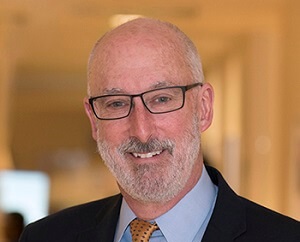 Dr. Alexander is the Chief Surgical Officer and Division Chief of Surgical Oncology at Rutgers Cancer Institute in New Jersey. His training began as a Navy medical officer. Alexander also completed a fellowship at Memorial Sloan Kettering Cancer Center in New York.
Dr. Alexander is the Chief Surgical Officer and Division Chief of Surgical Oncology at Rutgers Cancer Institute in New Jersey. His training began as a Navy medical officer. Alexander also completed a fellowship at Memorial Sloan Kettering Cancer Center in New York.
Alexander works in the Gastrointestinal/Hepatobiliary Program at Rutgers, a which focuses on improving treatment options for patients with rare and recurrent cancers like peritoneal mesothelioma.
He is one of a limited number of surgeons in the United States who can perform cytoreductive surgery with heated chemotherapy drugs (HIPEC). This method — which inserts warm chemotherapy directly into the abdominal area following surgery ― is considered the gold standard treatment for peritoneal mesothelioma.
Alexander is the former deputy director in the Center for Cancer Research at the National Cancer Institute. He has also authored over 250 peer-reviewed articles and lectured about cancer treatment in 17 countries.
David Bartlett
Dr. Bartlett is a peritoneal mesothelioma specialist at UPMC Hillman Cancer Center in Pittsburgh. He is the Chief of Surgical Oncology and directs the David C. Koch Regional Perfusion Cancer Therapy Center.
Bartlett specializes in regional perfusion, the delivery of chemotherapy drugs directly to an organ or part of the body where metastatic cancer cannot be fully removed. His research interests include translational medicine, immunotherapy, therapeutic cancer vaccines and gene therapy to advance the treatment of peritoneal mesothelioma and other cancers.
Raphael Bueno
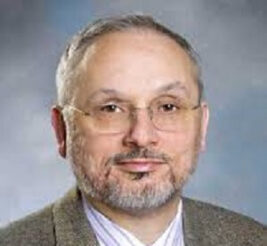 Dr. Bueno is Chief of Thoracic Surgery and Co-director of the Brigham and Women’s Lung Center in Boston.
Dr. Bueno is Chief of Thoracic Surgery and Co-director of the Brigham and Women’s Lung Center in Boston.
His research focuses on the development of novel methods to diagnose mesothelioma. One key finding is that a gene-ratio technique can help not only verify a mesothelioma diagnosis, but could also differentiate what cell types were predominant in the affected tissues. Cell type is a significant factor in estimating survival times, making this discovery an important one for pleural mesothelioma patients.
Robert B. Cameron
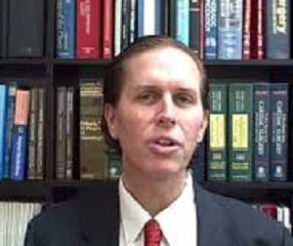 Dr. Cameron is the founder of the mesothelioma program at Jonsson Comprehensive Cancer Center in Los Angeles. He is a thoracic surgeon with interests in lung-sparing surgeries that remove all visible signs of cancer without affecting the healthy portions of the lung.
Dr. Cameron is the founder of the mesothelioma program at Jonsson Comprehensive Cancer Center in Los Angeles. He is a thoracic surgeon with interests in lung-sparing surgeries that remove all visible signs of cancer without affecting the healthy portions of the lung.
Cameron uses a variety of treatment methods to tackle mesothelioma, including lasers, video-assisted surgery and robotic surgery.
His is also an active researcher. Current studies are examining the role of intraoperative radiation on mesothelioma patients, as well photodynamic therapy, tumor vaccines and the pathogenesis of pleural mesothelioma.
W. Charles Conway II
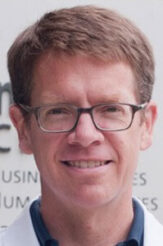 Dr. Conway is a surgical oncologist at Ridley-Tree Cancer Center in Santa Barbara, Calif. He specializes in peritoneal mesothelioma and is trained in performing cytoreductive surgery with hyperthermic intraperitoneal chemotherapy (HIPEC).
Dr. Conway is a surgical oncologist at Ridley-Tree Cancer Center in Santa Barbara, Calif. He specializes in peritoneal mesothelioma and is trained in performing cytoreductive surgery with hyperthermic intraperitoneal chemotherapy (HIPEC).
Conway was instrumental in advancing the treatment of peritoneal mesothelioma at Ochsner Hospital in New Orleans. In addition to mesothelioma, Conway treats patients with gastroesophageal, hepatic and pancreatic tumors.
Marcelo C. DaSilva
 Dr. DaSilva is a member of the International Mesothelioma Program at Brigham & Women’s Hospital in Boston. He is an associate surgeon in the Division of Thoracic Surgery, chief of thoracic surgery at Care New England and a lecturer in surgery at Harvard Medical Center.
Dr. DaSilva is a member of the International Mesothelioma Program at Brigham & Women’s Hospital in Boston. He is an associate surgeon in the Division of Thoracic Surgery, chief of thoracic surgery at Care New England and a lecturer in surgery at Harvard Medical Center.
DaSilva developed a heated chemotherapy technique for treating patients with pleural mesothelioma. After removing as much cancerous tissue as possible during surgery, DaSilva applies heated chemotherapy drugs to the lungs in an attempt to kill any remaining cancer cells.
Sophie Dessureault
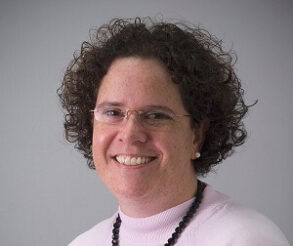 Dr. Dessureault specializes in peritoneal mesothelioma and gastrointestinal cancers at Moffitt Cancer Center in Tampa, Fla.
Dr. Dessureault specializes in peritoneal mesothelioma and gastrointestinal cancers at Moffitt Cancer Center in Tampa, Fla.
An award-winning surgical oncologist, Dessureault was involved in a landmark study that found that repeating HIPEC has the potential to extend survival times for patients with peritoneal mesothelioma. That results of that research were published in the Annals of Surgical Oncology in 2014.
Raja Flores
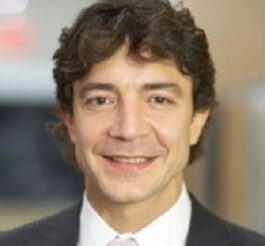 Dr. Flores specializes in the treatment of pleural mesothelioma at Mount Sinai Medical Center in New York City. He advocates for minimally invasive surgical treatment for mesothelioma and other cancers.
Dr. Flores specializes in the treatment of pleural mesothelioma at Mount Sinai Medical Center in New York City. He advocates for minimally invasive surgical treatment for mesothelioma and other cancers.
Flores pioneered the minimally invasive VATS lobectomy for lung cancer and has led or participated in many clinical trials. He is also researching the effectiveness of multimodal treatments for mesothelioma patients.
Jacques Fontaine
 Dr. Fontaine leads the Mesothelioma Research Center at Moffitt Cancer Center in Florida. He is a thoracic surgeon with experience in minimally invasive surgeries and robotic surgery. His research focuses on immunotherapy and therapeutic vaccines, among others.
Dr. Fontaine leads the Mesothelioma Research Center at Moffitt Cancer Center in Florida. He is a thoracic surgeon with experience in minimally invasive surgeries and robotic surgery. His research focuses on immunotherapy and therapeutic vaccines, among others.
Fontaine also treats patients with esophageal cancer, lung cancer and rare cancers such as Pancoast tumor and thymoma. His studies have been published numerous scholarly journals.
David Harpole
 Dr. Harpole is a thoracic surgeon at Duke University in Durham, NC. He has led the Duke Lung Cancer Research Laboratory for 20 years. He specializes in the treatment of mesothelioma and lung cancer.
Dr. Harpole is a thoracic surgeon at Duke University in Durham, NC. He has led the Duke Lung Cancer Research Laboratory for 20 years. He specializes in the treatment of mesothelioma and lung cancer.
Harpole is Co-chair of the Thoracic Malignancy Steering Committee, which oversees all of the mesothelioma, lung cancer and thymoma clinical trials in North America. He has a special interest in the genomics of mesothelioma and lung cancer, which seeks to understand how gene abnormalities can cause tumors to grow.
David M. Jablons
 Dr. Jablons is a thoracic surgeon, researcher and professor at the University of California, San Francisco. He leads the thoracic oncology program at UCSF’s Helen Diller Family Comprehensive Cancer Center.
Dr. Jablons is a thoracic surgeon, researcher and professor at the University of California, San Francisco. He leads the thoracic oncology program at UCSF’s Helen Diller Family Comprehensive Cancer Center.
Jablons was trained at some of the most respected mesothelioma institutions in the country, including Brigham and Women’s Hospital in Boston and Memorial Sloan Kettering Cancer Center in New York.
He specializes in minimally invasive surgical procedures, robotic surgeries and video-assisted thoracoscopic surgery (VATS) to treat patients with mesothelioma.
Jablons’s research interests include drug target discovery, commercialization of novel therapeutics and developing gene assays to identify important biomarkers for earlier detection of mesothelioma and other cancers.
Hedy Lee Kindler
 Dr. Kindler treats patients with pleural mesothelioma at the University of Chicago Comprehensive Cancer Center. She also focuses on lung cancer and pancreatic cancer.
Dr. Kindler treats patients with pleural mesothelioma at the University of Chicago Comprehensive Cancer Center. She also focuses on lung cancer and pancreatic cancer.
Kindler designs and oversees clinical trials looking for novel agents to treat mesothelioma. That includes the development of chemotherapy drugs and angiogenesis inhibitors for mesothelioma patients. She also studies peritoneal mesothelioma, the second-most common form of the disease.
In addition, Kindler is a past recipient of the Selikoff Lifetime Achievement Award from the Asbestos Disease Awareness Organization.
Abraham “Avi” Lebenthal
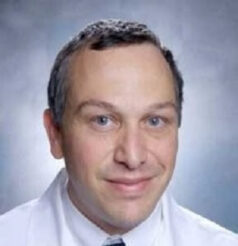 Dr. Lebenthal is a pleural mesothelioma specialist at Brigham and Women’s Hospital and the VA Boston Healthcare System. He is also an instructor of surgery at Harvard Medical School.
Dr. Lebenthal is a pleural mesothelioma specialist at Brigham and Women’s Hospital and the VA Boston Healthcare System. He is also an instructor of surgery at Harvard Medical School.
Lebenthal uses numerous surgical methods to treat patients with pleural mesothelioma, including pleurectomy with decortication (P/D), video-assisted thoracic surgery (VATS), laparoscopy and photodynamic therapy.
In addition, he is affiliated with the International Mesothelioma Program and leads the mesothelioma team at the Boston VA.
Brian Loggie
 Dr. Loggie is Chief of the Division of Surgical Oncology at Creighton University Medical Center in Omaha, Neb. Loggie is among the early developers of the cytoreductive surgery and heated chemotherapy (HIPEC) technique to treat peritoneal mesothelioma.
Dr. Loggie is Chief of the Division of Surgical Oncology at Creighton University Medical Center in Omaha, Neb. Loggie is among the early developers of the cytoreductive surgery and heated chemotherapy (HIPEC) technique to treat peritoneal mesothelioma.
Loggie pioneered the use of cytoreductive surgery and HIPEC for patients with peritoneal cancers at Wake Forest University Baptist Medical Center in Winston-Salem, NC. Loggie also treats patients with other rare and recurrent abdominal cancers.
In addition to his surgical duties, Loggie is director of the Cancer Biology Program at Creighton. His interests include clinical trials for mesothelioma, estrogen receptor regulation and Cox 2 mucinous cancers.
Charles Ray Mulligan
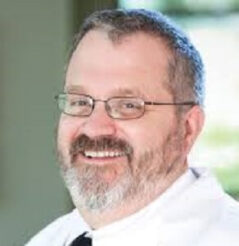 Dr. Mulligan uses minimally invasive surgery and video-assisted thoracic surgery (VATS) to treat patients with mesothelioma and early-stage lung cancer. He is the Chief of Thoracic Surgery at Christiana Care Health System in Newark, Del.
Dr. Mulligan uses minimally invasive surgery and video-assisted thoracic surgery (VATS) to treat patients with mesothelioma and early-stage lung cancer. He is the Chief of Thoracic Surgery at Christiana Care Health System in Newark, Del.
An Army veteran, Mulligan led thoracic and surgical teams at 28th Combat Support Hospital during two tours in Iraq. He also served as a cardiothoracic surgeon at Walter Reed Army Medical Center.
Mulligan retired from active duty in 2008. He then joined the Helen F. Graham Cancer at Christiana Care. In 2012, he was recruited to build the Thoracic Oncology Program at Centra Health and Pearson Cancer Center in Lynchburg, Va. He returned to Christiana Care in 2014.
Harvey Pass
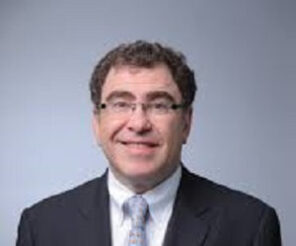 Dr. Pass specializes in mesothelioma at Perlmutter Cancer Center in New York. He works with a team of physicians to provide customized care for cancer patients.
Dr. Pass specializes in mesothelioma at Perlmutter Cancer Center in New York. He works with a team of physicians to provide customized care for cancer patients.
Pass uses minimally invasive techniques and robotic surgery to treat patients with mesothelioma. The goal is to minimize pain and shorten recovery times.
Pass has designed and overseen numerous clinical studies to identify novel treatments and better detect thoracic cancers through blood biomarkers.
He has received the Wagner Medal from the International Mesothelioma Interest Group and the Pioneer Award from the Mesothelioma Applied Research Foundation.
J.F. Pingpank Jr.
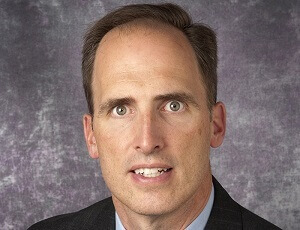 Dr. Pingpank is a peritoneal mesothelioma specialist and associate professor of surgery at UPMC Hillman Cancer Center in Pittsburgh. He also treats patients with a variety of gastrointestinal cancers.
Dr. Pingpank is a peritoneal mesothelioma specialist and associate professor of surgery at UPMC Hillman Cancer Center in Pittsburgh. He also treats patients with a variety of gastrointestinal cancers.
Pingpank supports the use of regional treatments for advanced malignancies. Regional treatment applies therapy to only the areas of the body affected by cancer. This strategy preserves healthy tissues that could be damaged by other treatment methods.
Pingpank also performs cytoreduction with HIPEC for peritoneal mesothelioma patients. His research has been published in the Annals of Surgical Oncology, Journal of Immunotherapy for Cancer and the Journal of Surgical Oncology.
Paul H. Sugarbaker
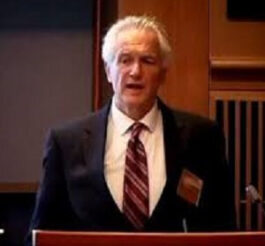 Dr. Sugarbaker is Chief of the Peritoneal Surface Malignancy Program and Director of the Center for Gastrointestinal Malignancies at Washington Hospital Center in Washington, D.C.
Dr. Sugarbaker is Chief of the Peritoneal Surface Malignancy Program and Director of the Center for Gastrointestinal Malignancies at Washington Hospital Center in Washington, D.C.
Sugarbaker pioneered the use of cytoreductive surgery with HIPEC to treat peritoneal mesothelioma. The technique has since been dubbed the Sugarbaker procedure.
Anne Tsao
 Dr. Tsao is director of the mesothelioma program at Anderson Cancer Center in Houston. She treats patients with mesothelioma and other head and neck cancers.
Dr. Tsao is director of the mesothelioma program at Anderson Cancer Center in Houston. She treats patients with mesothelioma and other head and neck cancers.
Tsao is an active researcher and works with a multidisciplinary team of specialists to coordinate care for mesothelioma patients. Her research explores the effectiveness of existing and new treatments to improve patient outcomes. Her interests also include immunotherapy and novel treatment methods for targeting mesothelioma.
Eric Vallieres
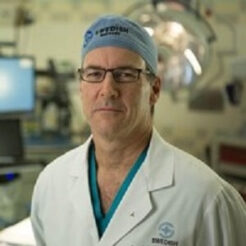 Dr. Vallieres is the surgical director of the Lung Cancer Program at the Swedish Medical Center in Seattle. He is board-certified in general and thoracic surgery.
Dr. Vallieres is the surgical director of the Lung Cancer Program at the Swedish Medical Center in Seattle. He is board-certified in general and thoracic surgery.
Vallieres treats patients with mesothelioma, lung cancer and other thoracic cancers. When appropriate, he uses a trimodal approach to cancer treatment. That strategy uses chemotherapy, surgery and radiation therapy to treat mesothelioma and other cancers.
Vallieres also uses advanced technologies during surgery, including a touchless imaging program that allows him to navigate through a patient’s scans using only hand gestures.
Valerie Rusch
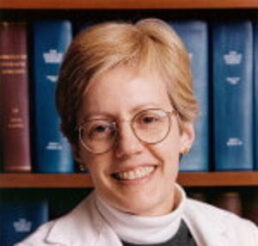 Dr. Rusch is one of the first women in the United States to be board certified in thoracic surgery. She treats patients with pleural mesothelioma at Memorial Sloan Kettering Cancer Center in New York City.
Dr. Rusch is one of the first women in the United States to be board certified in thoracic surgery. She treats patients with pleural mesothelioma at Memorial Sloan Kettering Cancer Center in New York City.
Rusch uses video-assisted thoracoscopy (VATS), robotic surgery and minimally invasive procedures for mesothelioma treatment. She also uses advanced ultrasound techniques in the staging of esophageal cancers.
Rusch has written chapters on mesothelioma, pleural disease, lung cancer, esophageal cancer and mediastinal diseases for medical textbooks. She is also Chair of the Mesothelioma Subcommittee of the International Association of Lung Cancer’s Staging Committee.
Ready to Discuss Mesothelioma Compensation? Contact Our Lawyers Today
If you’ve been diagnosed with mesothelioma, you may be eligible for compensation to help with medical expenses, lost income, lost wages and pain and suffering.
Let the dedicated New York lawyers at Belluck & Fox help. No matter what type of claim you file ― or even if you choose not to take action — you can count on our support from start to finish.
Please schedule a free consultation with our attorneys to learn about your rights to compensation now.
How Our Skilled Mesothelioma Lawyers Can Help You
Your health should always be your first priority when you’re dealing with mesothelioma. Let the lawyers at Belluck & Fox handle your claims for compensation.
Belluck & Fox pursues compensation for victims through mesothelioma lawsuits, asbestos bankruptcy trust funds, veterans’ benefits, Social Security benefits and workers’ compensation insurance. Our experienced attorneys will determine which options are best for you during a free consultation.
Every client who works with our attorneys receives:
- Aggressive yet compassionate representation: Our litigators fight hard so that asbestos manufacturers are held liable for their negligence. But we never forget the toll that mesothelioma takes on victims and their families. We handle every aspect of your claim so that you don’t need to worry about anything.
- Experience on your side: Our top-rated lawyers have recovered over $1 billion for clients and their families over the past two decades. Our knowledgeable attorneys have received numerous accolades for excellence from Best Lawyers, Super Lawyers and Martindale Hubbell.
- Superior investigative skills: Mesothelioma may not be diagnosed until 60 years after asbestos exposure. Our lawyers will go through every detail of your employment history to document each time you were exposed to asbestos. Our investigation may reveal more than one company is responsible for your exposure. We will fight for compensation for you from all possible sources.
If you or a loved one is suffering from mesothelioma, please contact us today to learn how we can support you during this difficult time or set up a meeting in our New York City mesothelioma lawyer office.
There is no fee for an initial case review, and our contingency-fee arrangement means that you won’t pay for our services unless we obtain compensation on your behalf.